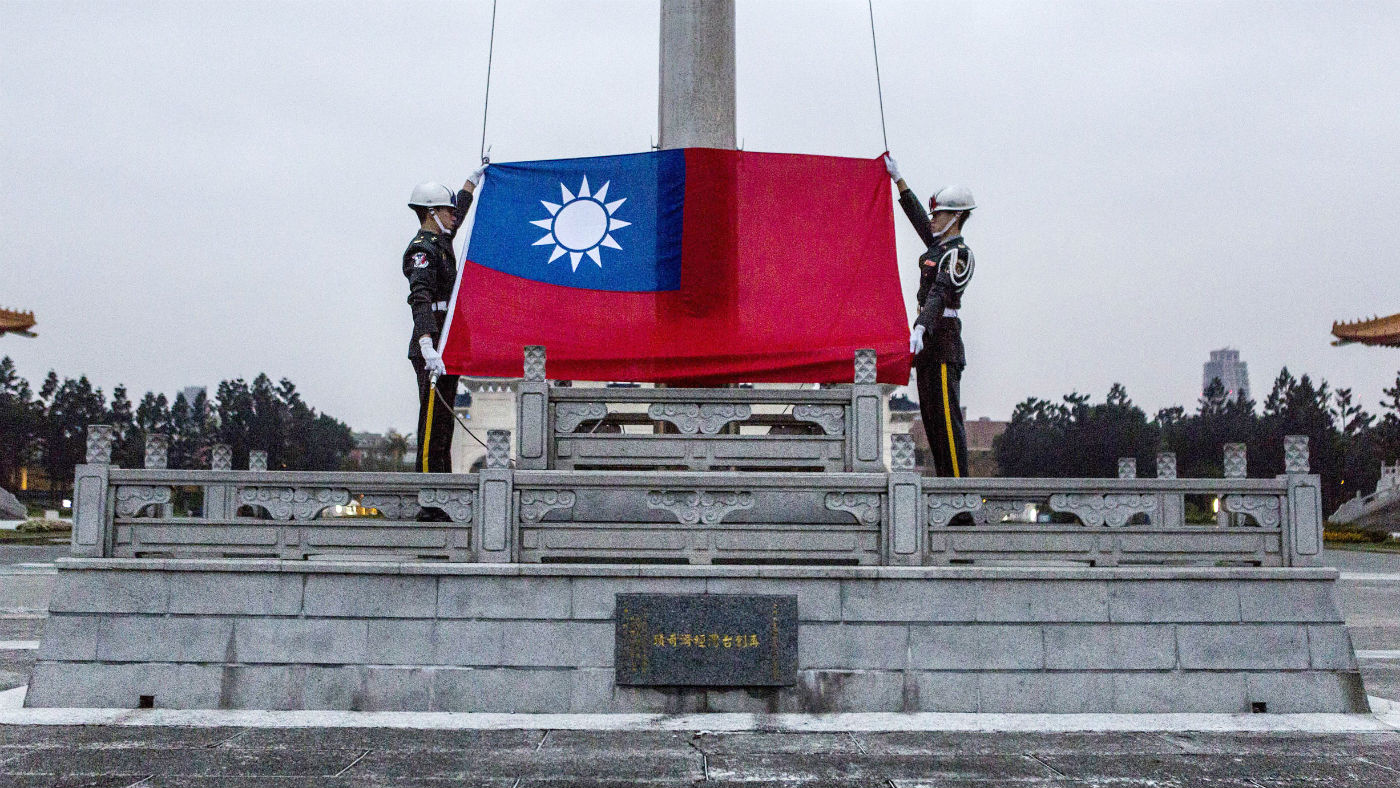Why Taiwan is running out of friends
Taipei vows to fight China’s ‘increasingly out of control’ behaviour after losing third ally this year

A free daily email with the biggest news stories of the day – and the best features from TheWeek.com
You are now subscribed
Your newsletter sign-up was successful
Taiwan has vowed to fight China’s “increasingly out of control” behaviour after El Salvador became its third ally this year to switch allegiances.
The loss of the Central American country reduces the number of Taipei's formal diplomatic allies to just 17, after Burkina Faso and the Dominican Republic also cut ties in May.
Many of the remaining nations are small, less developed countries in Central America and the Pacific, including Belize and Nauru.
The Week
Escape your echo chamber. Get the facts behind the news, plus analysis from multiple perspectives.

Sign up for The Week's Free Newsletters
From our morning news briefing to a weekly Good News Newsletter, get the best of The Week delivered directly to your inbox.
From our morning news briefing to a weekly Good News Newsletter, get the best of The Week delivered directly to your inbox.
Formally known as the Republic of China, Taiwan was established in 1949 by the remnants of the nationalist government which fled the mainland having lost a brutal civil war with Mao Zedong’s Communists.
Since then, Beijing and Taipei have had a history of rivalry in their efforts to gain economic opportunities and diplomatic support from governments around the world.
CNN says “the Chinese government views Taiwan as the most sensitive issue in its relations with other nations”.
China's communist leadership refuses to maintain diplomatic ties with any country that recognises the self-governed and democratic Taiwan, an island of just 23 million people off its south-eastern coast that Beijing considers an integral part of its territory.
A free daily email with the biggest news stories of the day – and the best features from TheWeek.com
For years, most Western nations refused formal ties with the government in Beijing, but ever since the 1970s the pendulum has slowly swung decisively in China’s favour, coinciding with an economic explosion that has been used to entice other countries to switch sides.
Speaking in Taipei after a diplomatic charm offensive of Africa, President Tsai Ing-wen said her country would not bow to pressure, describing El Salvador’s decision as further evidence of China’s efforts to squeeze the nation, which have included regular Chinese bomber patrols around the island.
“We will turn to countries with similar values to fight together against China’s increasingly out-of-control international behaviour,” Tsai said.
Beijing considers Taiwan to be a wayward province of “one China”, “and has never renounced the use of force to bring the island under its control”, says Reuters.
For decades the two countries have maintained an uneasy truce, but since Tsai came to power in 2016, Beijing has hardened its stance due to concerns over strong pro-independence sentiment within Taiwan's ruling party.
The Chinese military has increased drills around the island while Beijing has repeatedly warned Washington over growing closeness with Taipei under US President Donald Trump.
With its number of allies dwindling, the most symbolic country that still recognises Taiwan is the Vatican, however, CNN reports that since the beginning of this year, “rumours have leaked out suggesting the Holy See might be close to a decision of establishing diplomatic relations with Beijing in favour of Taipei”.
-
 Climate change has reduced US salaries
Climate change has reduced US salariesUnder the radar Elevated temperatures are capable of affecting the entire economy
-
 6 gorgeous homes in warm climes
6 gorgeous homes in warm climesFeature Featuring a Spanish Revival in Tucson and Richard Neutra-designed modernist home in Los Angeles
-
 Russia’s ‘cyborg’ spy pigeons
Russia’s ‘cyborg’ spy pigeonsUnder the Radar Moscow neurotech company with Kremlin-linked funding claims to implant neural chips in birds’ brains to control their flight, and create ‘bio-drones’
-
 Epstein files topple law CEO, roil UK government
Epstein files topple law CEO, roil UK governmentSpeed Read Peter Mandelson, Britain’s former ambassador to the US, is caught up in the scandal
-
 Iran and US prepare to meet after skirmishes
Iran and US prepare to meet after skirmishesSpeed Read The incident comes amid heightened tensions in the Middle East
-
 Israel retrieves final hostage’s body from Gaza
Israel retrieves final hostage’s body from GazaSpeed Read The 24-year-old police officer was killed during the initial Hamas attack
-
 China’s Xi targets top general in growing purge
China’s Xi targets top general in growing purgeSpeed Read Zhang Youxia is being investigated over ‘grave violations’ of the law
-
 Panama and Canada are negotiating over a crucial copper mine
Panama and Canada are negotiating over a crucial copper mineIn the Spotlight Panama is set to make a final decision on the mine this summer
-
 Why Greenland’s natural resources are nearly impossible to mine
Why Greenland’s natural resources are nearly impossible to mineThe Explainer The country’s natural landscape makes the task extremely difficult
-
 Iran cuts internet as protests escalate
Iran cuts internet as protests escalateSpeed Reada Government buildings across the country have been set on fire
-
 US nabs ‘shadow’ tanker claimed by Russia
US nabs ‘shadow’ tanker claimed by RussiaSpeed Read The ship was one of two vessels seized by the US military